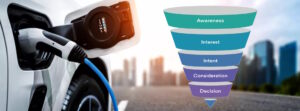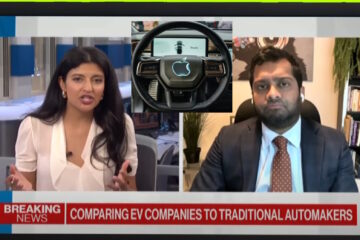The electric vehicle (EV) market is a rapidly growing sector with a unique set of challenges and opportunities. As competition intensifies, customer relationship management (CRM) becomes increasingly critical to success.

CRM systems can help businesses in the EV market to manage customer interactions effectively, build strong relationships, and ultimately drive sales.
However, to reap these benefits, businesses need to ensure that their CRM systems are as efficient as possible. This article explores strategies for boosting CRM efficiency in the EV market.
Understanding the Unique Challenges of the EV Market
The EV market is not like traditional automotive markets. It is characterized by rapid technological advancements, changing consumer preferences, and evolving regulatory landscapes.
These factors create a dynamic and complex environment that presents unique challenges for CRM.
Firstly, the rapid pace of technological change in the EV market means that products and services are constantly evolving. This requires businesses to continually update their CRM systems to reflect new product offerings and to manage customer interactions effectively.
Secondly, consumer preferences in the EV market are shifting as more people become aware of the benefits of electric vehicles. This changing consumer landscape requires businesses to adapt their CRM strategies to engage with a broader range of customers.
Finally, the regulatory environment for electric vehicles is also changing rapidly. Businesses need to ensure that their CRM systems can handle these changes and remain compliant with all relevant regulations.
Strategies for Boosting CRM Efficiency
Given these challenges, how can businesses boost the efficiency of their CRM systems in the EV market? Here are some strategies to consider:
Integrating CRM with Other Business Systems
Integration of CRM with other business systems can significantly enhance efficiency. By integrating CRM with systems such as ERP (Enterprise Resource Planning) or SCM (Supply Chain Management), businesses can ensure that all customer-related information is centralized and easily accessible.
This can help to streamline processes, reduce duplication of effort, and improve customer service.
For example, if a customer contacts a business with a query about an electric vehicle, the customer service representative can quickly access all relevant information about the customer and the product from the integrated system. This can help to resolve the query more quickly and efficiently, leading to improved customer satisfaction.
Automating CRM Processes
Automation is another key strategy for boosting CRM efficiency. By automating routine tasks, businesses can free up staff time for more strategic activities. This can also help to reduce errors and improve the consistency of customer interactions.
For example, businesses can automate the process of sending out marketing emails to customers. This not only saves time but also ensures that all customers receive consistent and timely communication.
Using Data Analytics to Drive CRM Strategy
Data analytics can provide valuable insights into customer behavior and preferences, which can be used to inform CRM strategy. By analyzing customer data, businesses can identify trends, predict future behavior, and tailor their offerings to meet customer needs.
For example, if data analysis reveals that a particular demographic is more likely to purchase electric vehicles, the business can target its marketing efforts toward this group. This can help to increase sales and improve customer retention.
Conclusion
Boosting CRM efficiency is crucial for businesses in the rapidly evolving EV market. By integrating CRM with other business systems, automating CRM processes, and using data analytics to drive strategy, businesses can enhance their CRM efficiency and gain a competitive edge in the market.
However, it’s important to remember that CRM is not a one-size-fits-all solution. Each business has its unique needs and challenges, and the most effective CRM strategies will be those that are tailored to meet these specific requirements.
Therefore, businesses should continually review and adjust their CRM strategies to ensure they remain effective and efficient in the face of changing market conditions.



0 Comments